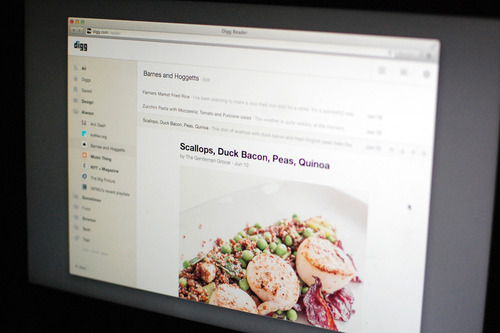Digg today announced that the first public beta of its Google Reader replacement Digg Reader will launch next week. Digg Reader will roll out in phases to allow the team to scale but the team promises that it will be available to everybody by June 26th.
Judging from the early screenshots the team just posted, we’re looking at a straight-up feed reader with a clean design and – at least for the time being – without any of the social media integrations the company hinted at earlier this year.
The Digg team says the service will ultimately become a “freemium” product. All of the features it is releasing now as part of this free beta will remain part of the free experience, however.
Digg Reader will feature a system for migrating feeds from Google Reader mobile apps “that sync with the web experience” and support for keyboard shortcuts (something Google Reader fans always loved about their favorite news reader).

Coming soon, Digg says, are an Android app (the Digg Reader will be rolled into the current Digg iOS app), as well as integration with third-party services like Buffer, Evernote and IFTTT. Digg Reader will get search and notifications in one of its next updates.
It also looks as if some of Digg’s old heritage will influence the design of Reader in the long run. Digg says it plans to add tools to “sort, filter and rank your reading lists and feeds, based on your networks, interests, likes, and so on.”
Google Reader is scheduled to shut down in two weeks. Digg Reader is clearly trying to position itself as an alternative to Feedly, Newsblur and other Reader alternatives. It remains to be seen, however, how many Google Reader users haven’t already found a new home and how many users who are new to RSS readers Digg Reader will be able to attract.
“While you’re at the beach and doing foliage cruises (or whatever people do in October), we’ll be spending the summer and fall building out a richer feature set, drawing heavily on users’ feedback, ideas, and requests,” the Digg team writes. “But first, we want to get the basics right, starting with a clean and uncluttered design and a powerful backend infrastructure than can operate well at scale.”
